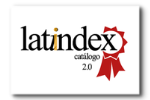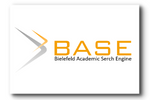Discussions on social philosophy about emancipatory evaluation: the dialectic of the new culture and contemporary educational practices
DOI:
https://doi.org/10.5281/zenodo.6772807Keywords:
Debate. Emancipating education. Paulo Freire. Democratization of knowledge. Practice of freedom. Assessment.Abstract
This work aims to discuss the socio-philosophical aspects of emancipatory evaluative practices through education and its reflexes, in which the process of dialogue for a new educational culture in contemporary society is considered. For this, the political contexts of emancipation of the individual through education are raised, in Freire (1967), in the evaluation in Luckesi (2005), and in the conceptions of democracy and school, in an approach by Saviani (2021) among others. The study permeates from the principles of education, as well as the methodologies of school evaluation, and the democratization of knowledge. The educational philosophy developed by Paulo Freire is pointed out, and its contributions to adult literacy and literacy in a conception of freedom, criticality, and culture and emancipation of students from literacy as a tool of knowledge and appropriation of knowledge, by Therefore, this article observes the reality of the school teaching-learning process and its forms of democratization and emancipation, living up to the situationalities of a time that dialogues with the education system used over the years, for the current system, in addition to criticizing the way evaluation has been viewed in an attempt to make it less excluding and more emancipatory.
Published
How to Cite
Issue
Section
ARK
License
Copyright (c) 2022 (CC BY 4.0)

This work is licensed under a Creative Commons Attribution 4.0 International License.
 https://orcid.org/0000-0002-5325-7980
https://orcid.org/0000-0002-5325-7980  http://lattes.cnpq.br/0621923604087895
http://lattes.cnpq.br/0621923604087895




















